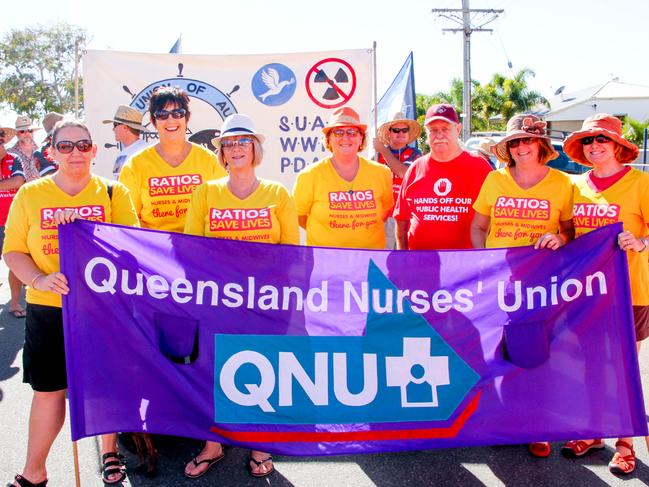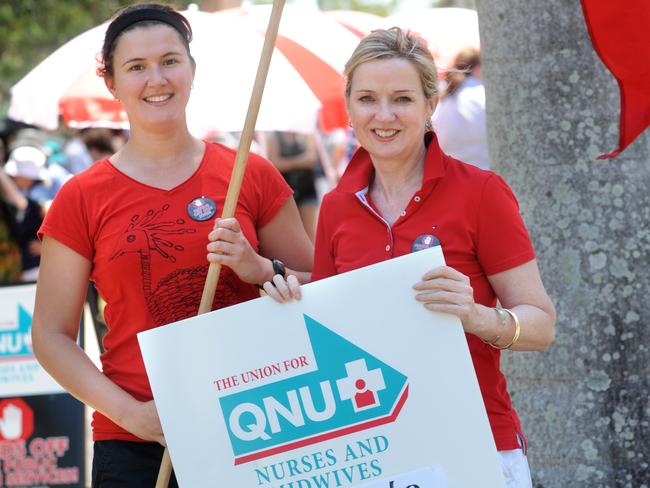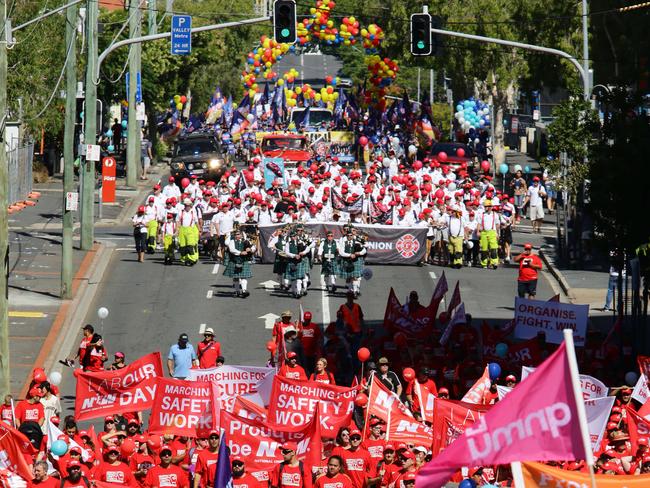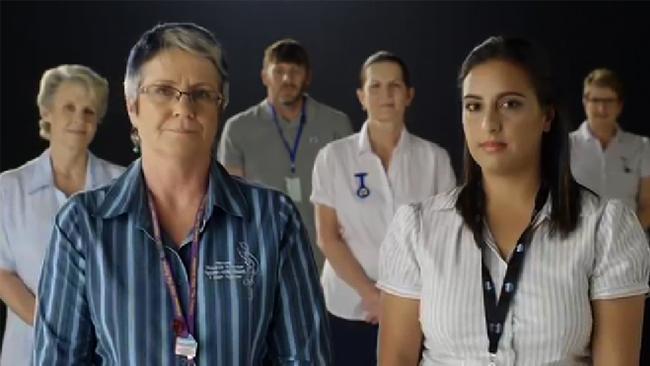QNMU challenged by upstart NPAQ
There’s a new kid on the industrial relations block in Queensland that’s putting traditional unions on notice: represent your members or risk losing them.

CM Insight
Don't miss out on the headlines from CM Insight. Followed categories will be added to My News.
THERE’S a new kid on the industrial relations block in Queensland that’s putting traditional unions on notice – represent your members or risk losing them.
The Nurses Professional Association of Queensland was set up five years ago as an alternative to one of the state’s most powerful industrial forces – the Queensland Nurses and Midwives’ Union.
Since then, NPAQ has attracted 3500 members and is growing at a rate of about 40 new members a week.
The model has been so successful that those behind it are about to launch a similar association to rival the Queensland Teachers’ Union. They also hope to establish like-minded organisations across different industries in Queensland, and eventually, interstate, pledging to provide workers with choice.
The QNMU, in existence for more than a century, represents almost 60,000 nurses and midwives – about 17 times the membership of the NPAQ, but is slowly bleeding and the wound is getting bigger.
At least part of the NPAQ’s attraction is membership fees, charging $345 a year for a full-time nurse and $237 for part-time nurses – about half of what the QNMU charges.
But in recent months, the NPAQ has been on the front foot of key Queensland public hospital issues, such as ramping and security, gaining statewide media traction and drowning out the larger and cashed-up QNMU.

NPAQ assistant secretary Jack McGuire provocatively accuses the QNMU of “holding its punches” while Labor is in government in Queensland.
“They won’t go out on strike and protest or carry on now that there’s a State Labor Government,” McGuire said.
“They’re more than happy to let things slide, and it’s nurses who suffer.”
Both groups vehemently profess to being apolitical.
“The QNMU is not affiliated with any political party and nor do we donate a single cent of members’ money to any political party,” acting state secretary Sandra Eales said.
“We work with any government of the day to ensure the best outcomes for Queensland’s nurses and midwives.
“Some of our biggest achievements have been won because we lobbied governments to invest in programs and pass legislation that impact the working lives of nurses and midwives.”
In 2011, the QNMU disaffiliated from the ALP amid the turmoil of the Queensland Health payroll debacle that saw many of its members underpaid, overpaid or not paid at all.
In the seven years since, they have not formally re-established ties with the ALP, and do not donate to the party anymore, but it’s disingenuous to suggest that their allegiances lie anywhere else.

Nevertheless, even during the long years of affiliation with the ALP, they were vocal on important issues during Labor regimes.
In 2010, at the height of the payroll mess, when the Bligh Labor Government was in power, QNMU secretary Beth Mohle likened the fiasco to the Gulf of Mexico oil disaster in terms of how long it was taking to fix.
And in 2002, with the union’s blessing, thousands of nurses famously rallied outside Parliament House for better pay and conditions during Labor MP Wendy Edmond’s rocky term as Health Minister.
Like the QNMU, the NPAQ claims to be non-political, pointing to section 59 of its constitution that prohibits “any donation to a political party” and “any allocation of moneys or association or branch services for any party political purposes”.
But it’s hard to ignore its founder Graeme Haycroft’s conservative past.
Haycroft does not deny his Liberal National Party roots, admitting he’s still a member of the party. “Although I used to be the LNP IR and Employment policy committee chairman, I stood down before we started this project four or five years ago,” he said in an email to The Courier-Mail.

Despite his clear right-wing leanings, Haycroft insists politics plays no part in NPAQ’s representation of its members.
“We do not believe the LNP can run the health system any better,” he said.
“They have no policy on what they would do at all other than somehow be different. Politicians of whatever persuasion are the problem, not the solution in the health system.”
His assistant secretary McGuire admits that because the NPAQ does not have official union status under the Industrial Relations Act, it has no rights of entry to work places and does not have an automatic seat at the enterprise bargaining table with the State Government.
“We have legislative hurdles to overcome but we haven’t let those slow us down,” he said.
“That has not stopped the association pursuing issues in the media, writing to the Queensland Health director-general Michael Walsh on behalf of members, and taking issues to the Queensland Industrial Relations Commission.

“We also act for nurses in aged-care facilities and in private hospitals in negotiations on wages and conditions.”
The QNMU points to its long record of fighting for nurses, midwives and patients, insisting it sets them apart from their industrial rivals.
“In the last financial year alone, the QNMU responded to 27,000 member calls and 14,000 emails,” Eales said.
“The QNMU provided expert representation for 3100 members and recovered $2.3 million for members. During the same time frame, the QNMU made 62 submissions to parliamentary committees and inquiries on everything from nurse-to-patient ratios in public hospitals to resident safety issues in Australia’s 2000-plus privately run aged-care facilities.”
Clearly, the NPAQ has a long way to go before it topples the QNMU as the state’s most powerful health union.
But there’s no doubt the ndustrial landscape has changed, perhaps forever.


